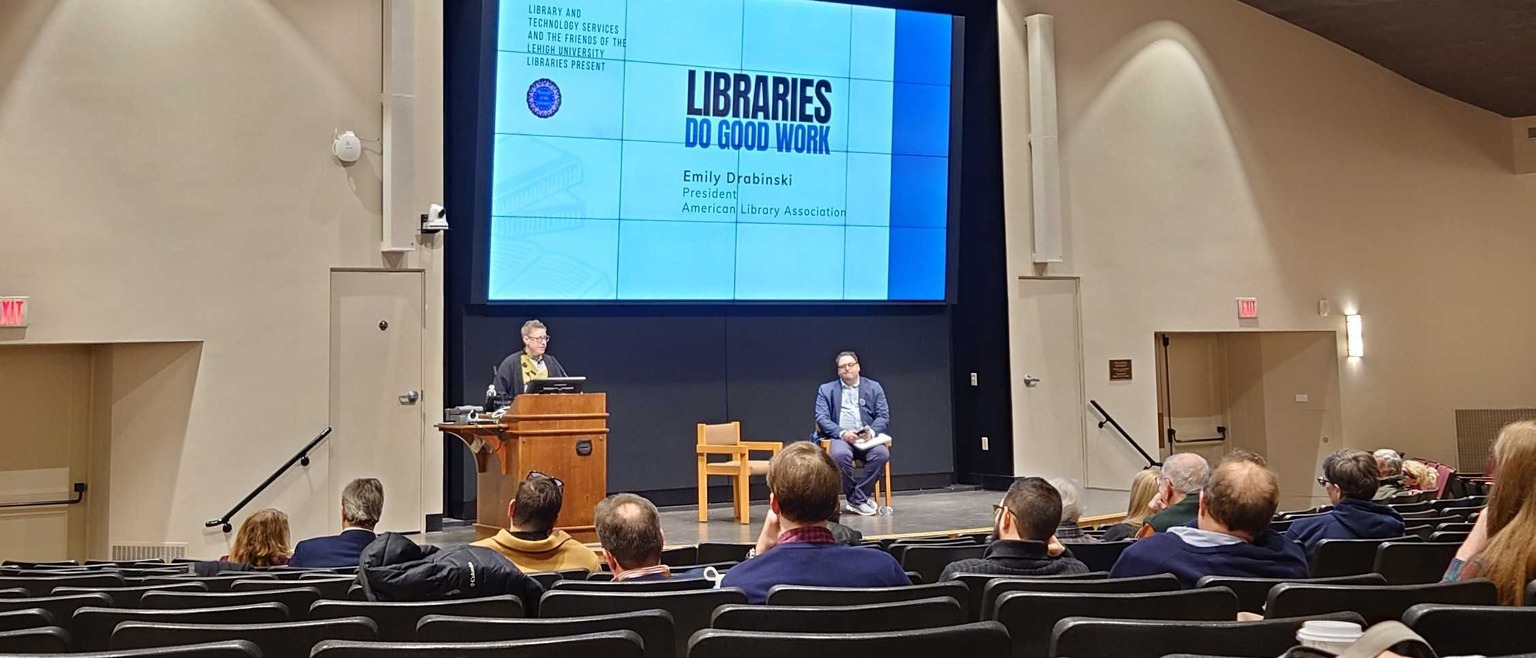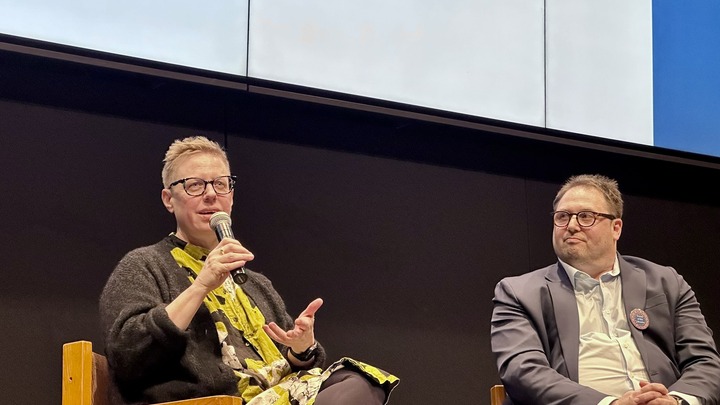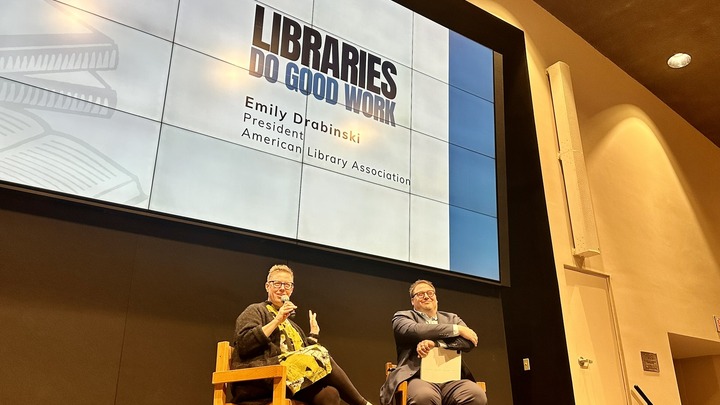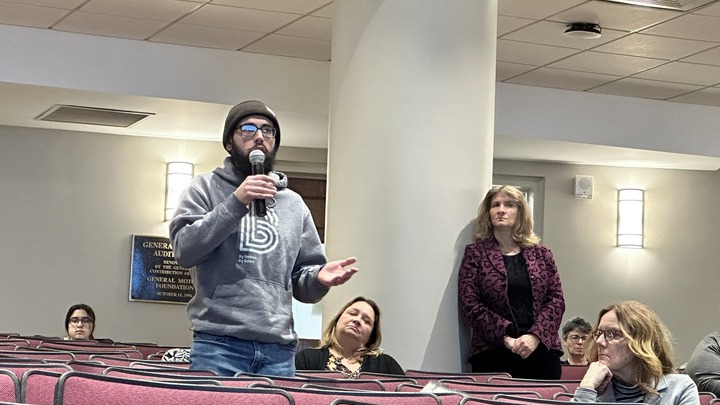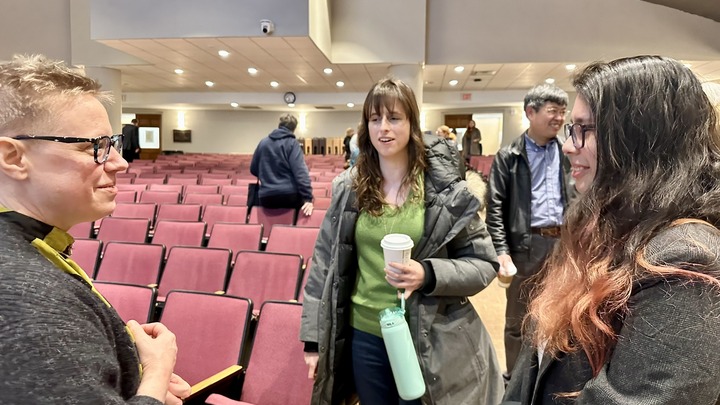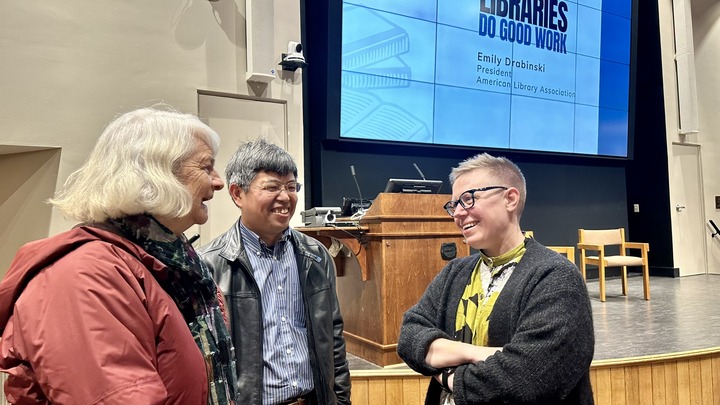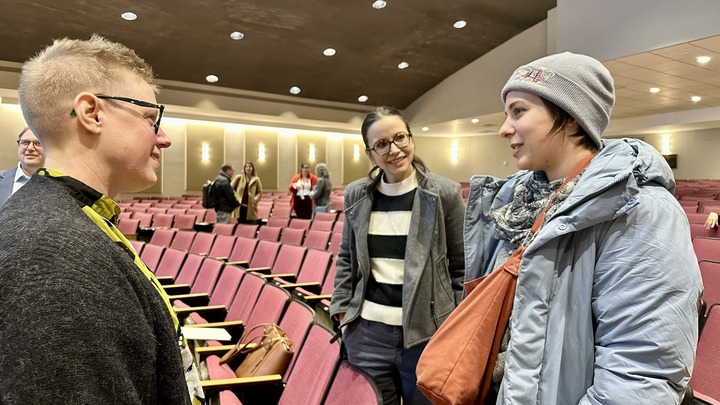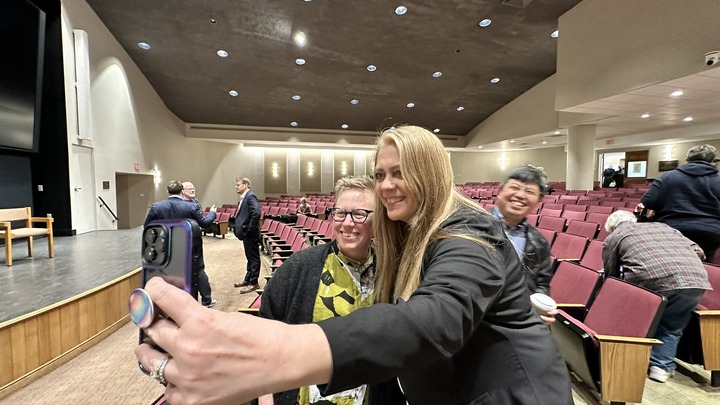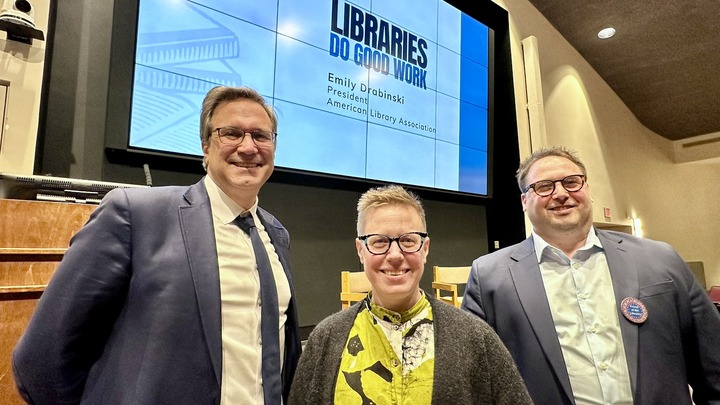Librarians and library advocates gathered at Packard Lab on Monday, Feb. 12, for a lecture by American Library Association president Emily Drabinski, who shed light on the critical importance of libraries amidst growing political pressures. Sponsored by the Friends of the Lehigh University Libraries, Drabinski’s talk, Libraries Do Good Work, comes at a time when libraries across the nation are facing increasing challenges and attacks on their fundamental role in society.
During the hour-long talk, open and free to Lehigh and LVAIC library enthusiasts, Drabinski emphasized the essential nature of libraries as spaces where people can feel welcome and safe, at the same time highlighting the ongoing struggle librarians face against threats to library freedoms and the imperative to uphold inclusive collection policies.
Drabinski spoke about the inherent value of librarianship, emphasizing that librarians are professionals entrusted with the responsibility to build collections that cater to diverse needs. She underscored the significance of libraries across the country as agents of change, providing essential services such as free internet access, restroom facilities, and safe spaces for all members of the community. “Is there another American institution as committed to improving the lives of their constituents as the library?” she asked.
She also highlighted the importance of celebrating the tireless and creative work of librarians in serving their communities. From providing shelter during extreme weather conditions to assisting patrons with essential resources, librarians play a crucial role in enhancing the well-being of society. “Libraries do good work,” she said. “The common good, the public good, not what one person or group of people consider to be the best for a community.”
Throughout her talk, Drabinski addressed the politicization of libraries and the challenges faced by library staff in the course of their work. She recounted instances of legislative threats and fear tactics aimed at restricting librarians' agency in selecting materials that reflect diverse perspectives, particularly concerning LGBTQ+ and Black lives.
“We see those laws from Missouri to Florida, Texas to Tennessee, and in my home state of Idaho,” she said. She criticized decisions like the one made by a library board in Alabama to prohibit the purchase of books about LGBTQ+ lives for readers under the age of 17, citing it as a fundamental undermining of librarians' agency and professional duty to provide diverse resources. “The agency of libraries is precisely what draws it into the sphere of political and politicizing attacks,” she noted.
Drabinski emphasized the need for solidarity among library workers and supporters to defend the integrity and mission of libraries and free inquiry and access to information. “As people who work in, support, and use libraries, you live your commitment every day to supporting the practices of reading and if reading is a practice of freedom, then libraries are institutions for freedom.” She warned against the dangers of minimizing libraries' autonomy and stressed the importance of upholding their non-partisan nature. “Librarian workers need to be empowered to make decisions that best serve our patrons and our community without the intrusion of those who imagine that they can run a library better than we can.”
She shared a few examples of community resistance that resulted in a reversal of restrictions on librarians’ agency. In one, she described how Louisiana-based Queer Northshore organized their social group to stand with the libraries after State Attorney General Jeff Landry announced a tipline to report on librarians who shared what he decided were inappropriate materials for children. “But he found the territory not as friendly as expected,” she said. The group mobilized supporters to attend all library board meetings “to make it clear that the community would not stand for the erasure of stories in their collection. Beginning last spring, targeted books including Toni Morrison’s The Bluest Eye and Cory Silverberg’s Sex is a Funny Word started making their way back to the shelves,” she said. “It’s important to know that when we fight, we win.”
Drabinski explained how organizations like the American Library Association are key in the fight for the right to read. “As president of the ALA, I’m lucky to work with people across the country developing programming and services that support all of us and our work,” she said.
She noted that ALA is increasing staff in its office of intellectual freedom, supports chapter-led hotlines for libraries facing challenges, invests in Lawyers for Libraries, which provides legal support for library workers across the country, offers cash grant support for librarians who face employment discrimination due to their support for intellectual freedom, and launched the campaign, United Against Book Bans, which she encouraged attendees to join.
The lecture was followed by a conversation with Boaz Nadav-Manes, University Librarian, and an audience Q&A session. The discussion touched on topics such as the practicalities of becoming a librarian, the effectiveness of organizing people against threats to the libraries and librarians, the devaluing of library expertise in public schools, and funding challenges faced by libraries around the country.
Emily Drabinski is Associate Professor at the Queens College (N.Y.) Graduate School of Library and Information Studies. She has served as President of the American Librarian Association since June, 2022. She publishes and presents widely on topics related to knowledge organization, information literacy, and critical perspectives in librarianship. Drabinski edits Gender and Sexuality in Information Studies, a book series from Library Juice Press/Litwin Books. She is a contributing writer at Truthout.
